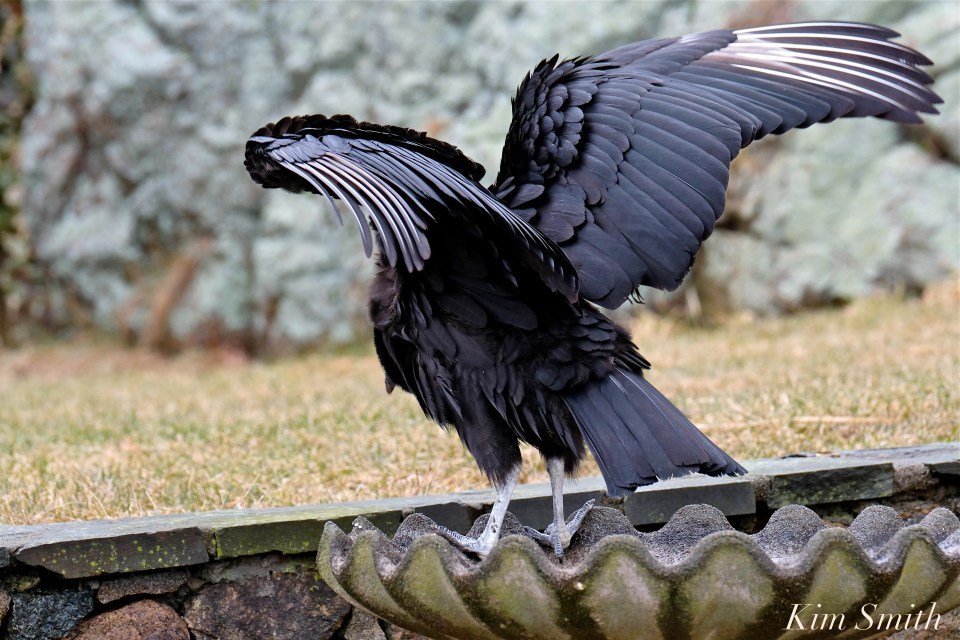Over the weekend, many new of sightings of Hector, Gloucester and Rockport’s visiting Black Vulture, were reported. He was seen at residences all along East Main Street, back at the Rockport dump, and even in Rockport Harbor! Many thanks to reader Lauren T for sharing her photo. Black Vulture “Hector” at Rockport Harbor
Black Vulture “Hector” at Rockport Harbor
Tag Archives: Coragyps atratus

RARELY SEEN ON CAPE ANN – A BLACK VULTURE!
Over the winter, a Black Vulture has been calling Cape Ann home. My friend Lois first alerted me to this back in December where he has been seen quite often in Rockport. I have been trying to capture some footage of him/her but only ever saw him soaring high above. The Black Vulture in flight is stunning and you can recognize the bird by its distinctive white wing tips.
As luck would have it, East Gloucester resident Larry shared a photo recently and his friend Frank generously allowed me to stop by and take some photos and footage. White wing tips of the Black Vulture
White wing tips of the Black Vulture
Being found mostly in South America, Central America, and the southern US, the Black Vulture’s range does not historically include Cape Ann (nor anywhere in Massachusetts). The bird’s range has been expanding northward since the early decades of the previous century and it is safe to say there may even be a few pairs breeding in the furthest most western regions of Massachusetts!
Black Vultures feed primarily on carrion. They fly high above on thermal winds looking for dead creatures, and also follow Turkey Vultures, which reportedly have a better sense of smell and can more easily locate carcasses. Black Vultures also kill skunks, possums, Night Herons, turtle hatchlings, chickens, young livestock, and sickly small pets. And, too, they pick through dumps and dumpsters, and even wade into water for small fish and floating carrion. It’s no wonder their range is expanding!
The Black Vulture visiting Frank’s yard appeared to be communicating with Frank. Black Vultures lack a voice box; instead of singing, one of the sounds they make is a low ruff sort of bark. Frank can imitate the bark perfectly, and the bird barks back!
Black Vulture Historic Status in Massachusetts, from Mass Audubon:
The first Black Vulture identified in Massachusetts was shot in Swampscott in November of 1850. The second appeared in Gloucester on September 28, 1863, where it, too, was killed (Howe & Allen 1901). Throughout the next century, the bird was considered an accidental straggler in Massachusetts; and, by the middle of the nineteenth century, the species was on the move from its deep Southern roots, breeding in southern Maryland for the first time in 1922 (Court 1924) and in Pennsylvania by 1952 (Brauning 1992).
If you see Cape Ann’s Black Vulture hanging around your property, please let me know at kimsmithdesigns@hotmail.com. Thank you so much!












